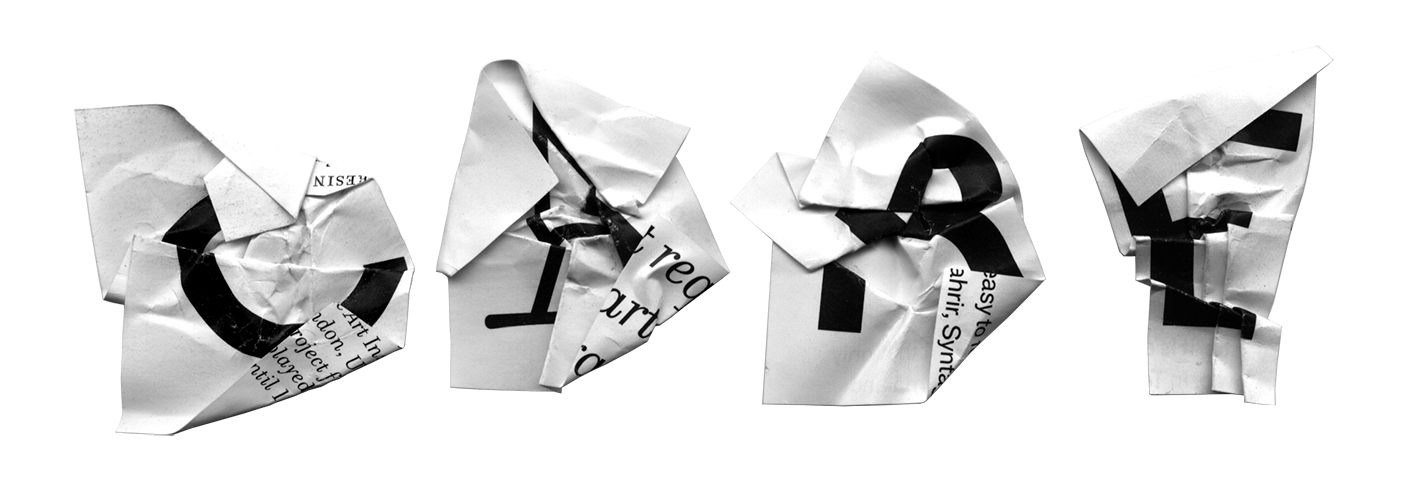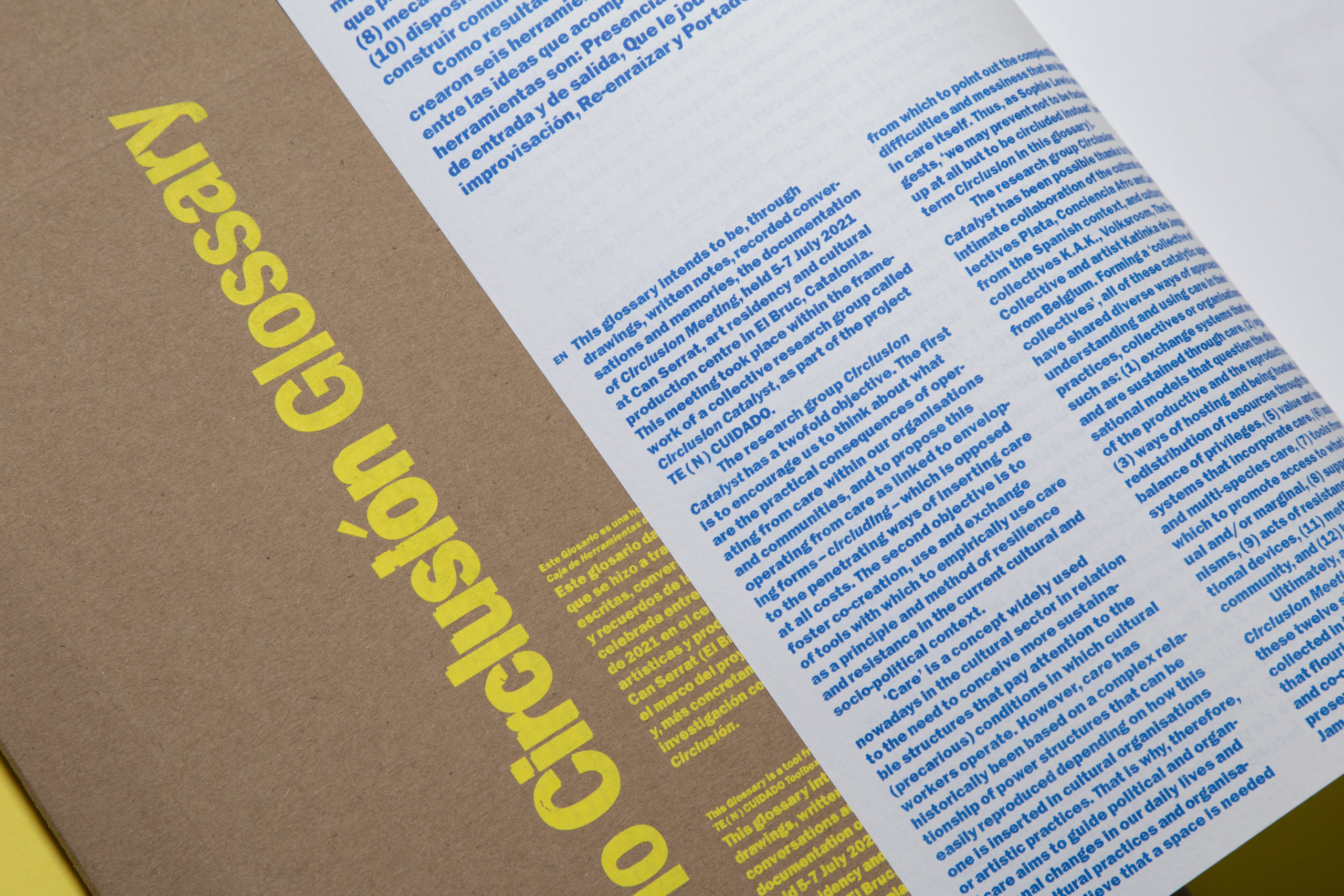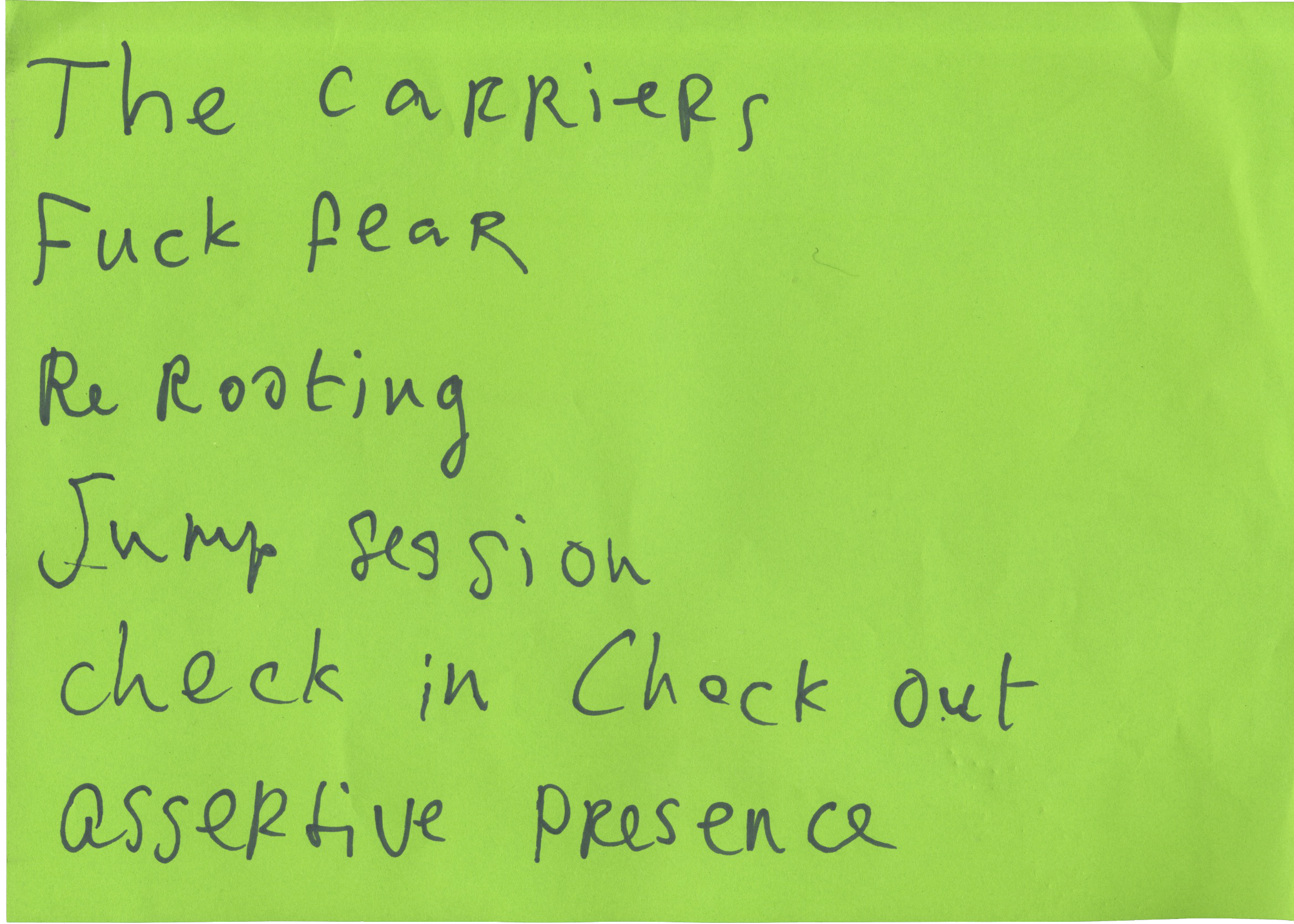CIRCLUSION is the title of the collective action research developed in Catalyst 3, where we addressed the focus ‘Care and support networks’. Promoting a collaboration between six organizations and cultural collectives based in Spain and Belgium, the objective of this Catalyst is to share tools with which to use care both as principle and as method of resilience and resistance, in the current cultural and socio-political context.

Nowadays, ‘care’ is a concept widely used in the cultural milieu in relation to the need for devising more sustainable structures that could pay attention to the (precarious) conditions in which cultural workers operate. However, this notion of care has historically been based upon complex relations of power structures that can be easily replicated depending on how care is inserted into cultural organisations or artistic practices. Thus, if care is really going to guide political and organisational changes in our everyday lives and in cultural practices and organizations, a space is needed from which to point out the complexities, the difficulties and the fuss that care in itself entails.
CIRCLUSION derives from Latin circum (around) and clure (to close) and means to encompass, wrap or embrace something.
‘CIRCLUSION’ is a term proposed by artist and writer Bini Adamczak in 2016, which suggests a speculative change in the framework of sexual power and politics, since the idea of ‘circlusion’ gets agency around the acts of embracing, surrounding or wrapping. Thus, the act of circlusion allows us to think from other positions and actions about the frequently used – and at times prostituted – term ‘care’ in organizations and/or cultural groups. In this way, we want to move away from the idea of penetration as an active action, to get to actively circlude – embrace, surround, wrap – those processes, needs, ways of operating, agents and/or communities in the areas included in the project Te( n ) cuidado.

What is the role of care in cultural organisations and in artistic practice?
Do we want cultural institutions and artistic practices to operate from the standpoint of care? What exactly does this mean?
How is care made tangible in artistic and cultural practices and organisations?
The aim of the Catalyst CIRCLUSION is the exchange, co-creation and use of tools and/or specific methodologies that may lead us to question what are the practical consequences of operating from the standpoint of care.
This Catalyst CIRCLUSION is being carried out in intimate collaboration with artistic and cultural collectives Plata, Conciencia Afro and Larre, coming from Spain, and KAK, Volksroom and PostCollective coming from Belgium – learn more about them in the section NETWORK. These collectives are the catalyst agents invited to discuss, share, re-create and/or re-articulate ‘tools’ with which to foster and implement care in a practical way within their cultural and/or artistic organisations.
CIRCLUSION develops in 3 initial phases, proposing to test the normative codes and ways of doing of the ambits that host them – academic, artistic, civil society – as far as care is concerned:
Phase 1: (un)SCREWING CARE SEMINAR
Organised in June 2021 in the framework of the academic Research Seminars Program at the Antwerp Doctoral School, with the support of Antwerp Research Institute for the Arts (ARIA) and the University of Antwerp (UA).
Phase 2: Circlusion MEETING
It was organised during 5, 6 and 7 July 2021 at the centre for artists’ residencies and cultural production Can Serrat (El Bruc, Catalonia).
This glossary intends to be, through drawings, written notes, recorded conversations and memories, the documentation of Circlusion Meeting.

Phase 3: CIRCLUDING Circlusion
Digital meeting with all the participants, as closure of the Circlusion Catalyst. It took place on November 2021.
CIRCLUSION TOOLS
Throughout the Catalyst‘s phases, a series of care-driven tools were generated, which have been essentials for the creation of the Te( n ) cuidado Toolbox.
This tools are:

The research developed in this Catalyst has been supported by grants for the production of academic research seminars of the Antwerp Research Institute for the Arts (ARIA), as well as by the co-funding of the research group Culture Commons Quest Office (CCQO) supported by the University of Antwerp (UA) and the Odysseus Grant of the Flemish Scientific Fund (FWO).
From experiences and knowledges exchanged and connected in the Catalyst CIRCLUSION, the open process of the theoretical and practical, collective and collaborative research keeps on evolving in the following CHAPTERS: